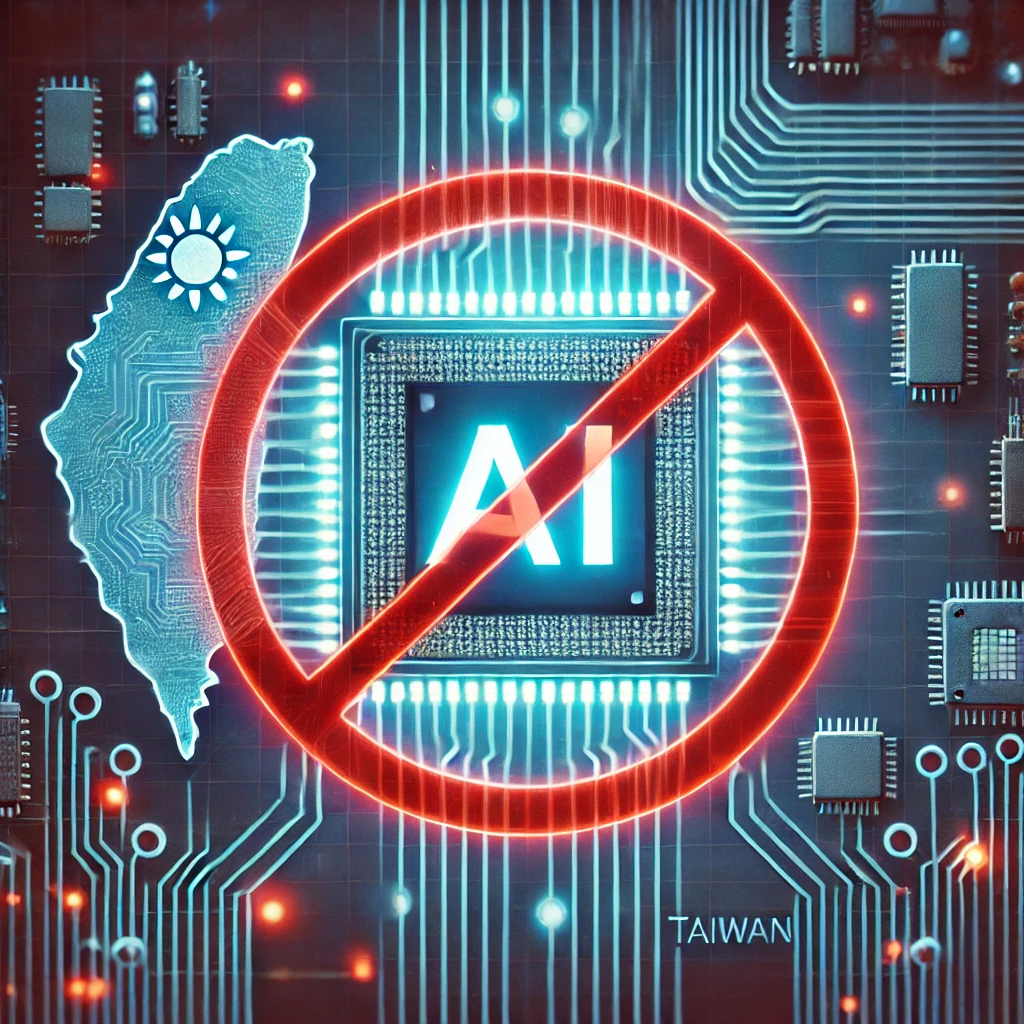On February 3, Taiwanese Premier Cho Jung-tai announced a complete ban on the use of the generative AI developed by the Chinese startup DeepSeek in public institutions. This decision was made in consideration of various concerns, including government information security, copyright issues, and the risk of ideological censorship. This article examines the background of this decision and its potential impact.
Reasons for the Ban on DeepSeek AI
According to Premier Cho, the primary reasons for banning DeepSeek AI can be summarized in three key points:
- Suspected Copyright Violations
Generative AI operates by learning from vast amounts of data. However, concerns have been raised about how DeepSeek acquires its data, with potential copyright-related issues. Due to the opacity surrounding DeepSeek’s data collection and processing methods, the Taiwanese government has opted for a cautious approach.
- Ideological Censorship and Data Bias
AI training data often reflects the intentions of its developers, potentially leading to biases that emphasize specific ideologies. The Taiwanese government is particularly concerned that AI developed by a Chinese company may contain biases that conflict with free and democratic values.
- Information Security and Privacy Protection
The government has pointed out the risk that data generated by DeepSeek AI could be transmitted to China. If public institution data were to leak externally, it could pose a national security threat. To mitigate this risk, Taiwan has taken a strong stance by enforcing a complete ban.
Taiwan’s Information Security Measures
In 2019, Taiwan introduced principles restricting the use of certain products and technologies in public institutions to safeguard national information security. At the time, Chinese-made telecommunications equipment and software were already viewed as potential national security risks.
Additionally, on January 31, Taiwan’s Ministry of Digital Affairs issued a warning urging public institutions and critical infrastructure facilities to limit the use of DeepSeek AI. The recent ban is part of Taiwan’s consistent approach to prioritizing information security.
Global Trends in AI Regulation
Taiwan’s decision is aligned with global trends in AI regulation. For example:
- EU
The European Union is discussing the AI Act, aimed at ensuring AI transparency and safety, with increasing restrictions on AI usage by companies.
- United States
The U.S. has taken a cautious approach toward technologies related to national security.
There is growing international scrutiny of Chinese AI technologies. In 2023, the U.S. considered regulations on AI tools developed by major Chinese companies. Taiwan’s ban reflects this broader global trend.
Potential Impact of the Ban
- Impact on AI Development in Taiwan
Restricting the use of Chinese AI in public institutions could incentivize local companies to accelerate AI development. If the Taiwanese government introduces policies to support domestic AI technologies, homegrown AI development may gain momentum.
- Impact on Chinese AI Companies
DeepSeek’s business expansion in Taiwan will face significant restrictions. If similar regulations spread to other countries, Chinese AI companies may need to rethink their market strategies.
- Influence on Other Countries’ Policies
Taiwan’s complete ban on Chinese AI could prompt Japan, the U.S., and Europe to consider similar regulations. While the U.S. and EU are already cautious about Chinese AI technologies, Taiwan’s decision may further accelerate this trend.
Conclusion
Taiwan’s ban on DeepSeek AI reflects a multifaceted approach to risk management, addressing concerns over information security, ideological bias, and copyright violations. This policy should be understood not merely as an exclusion of Chinese AI but as part of Taiwan’s broader effort to strengthen digital sovereignty and information security.
Moving forward, it will be crucial to observe how Taiwan promotes domestic AI development and establishes standards for AI use. Additionally, the impact of this decision on global AI regulation should be closely monitored.

